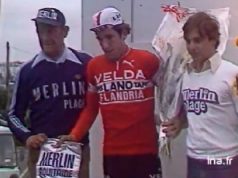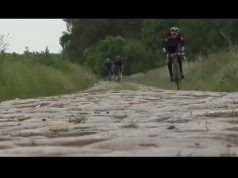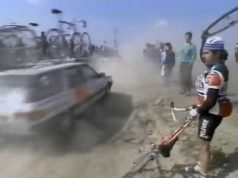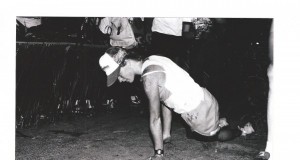By Graham Healy
One hundred years ago, a group of six intrepid Australians travelled to Europe to race as professional cyclists. Unfortunately, they missed out on their chance to make it, due to war breaking out a few months after their arrival.
However, they did have a chance to take part in some of the biggest races, and this is their account of their experience of Paris-Roubaix. The race has totally changed in some ways from the way it was run a century ago, but in other ways it seems just the same.
AUSTRALIANS IN FRANCE
PARIS-ROUBAIX RACE
Writing from Paris, Don Kirkham a member of the Australian road racing team now on the Continent, has forwarded an interesting account of the team’s misfortunes in the Paris-Roubaix race, with which the French road-racing season opened last month. None of the team ran into a place in the event, which was won by the French rider, Crupelandt, in a field of 153. The latter portion of the 170 ½ miles course was over rough cobblestone roads.
According to Kirkham, the contest started in the early morning, and the whole field got away from scratch. Snell rode an 86-Inch gear, Munro 81-inch, Piercy and Bell 78-inch, while Kirkham selected an 84-inch combination. O’Keefe did not ride, as he was suffering from the effects of a training spill. The majority of the Frenchmen used 69 to 77 Inch gears.
The Australians got away fairly in the scramble at the start. Snell was the first to strike trouble, having a puncture; but he effected a quick repair, and caught the leaders at tho Beauvais control, 50 ¾ miles from the start. Ho got left at the control, and after another hard ride caught the bunch again; but these two “stern” chases, Kirkham states, took all the go out of Snell, and he finished 60th.
Bell missed his food at the first control, and before Amiens (the second control) was reached, he weakened for want of nourishment and retired. Piercy, who was riding well, broke his wheel after leaving Amiens. Motors were not allowed to pick up competitors who had retired, either through accident or fatigue, and bring them to the finish. The riders had to make their way to the nearest railway station.
“As regards myself,” the Australian champion continues, “I am writing this with badly swollen knees. I was going well until l8 miles from the finish, when a rider swung off the cobbled road, making for the footpath, upon which a dozen of us – all that was left in the leading bunch of 153 starters – were riding.
I did not see the rider, and came a nasty cropper on a lot of loose cinders and coke. My machine was smashed, the top bar of the frame being snapped in two, so I had nothing to do but get back to Paris by train.”
“Munro,” Kirkham adds, “rode well. He punctured twice, and then finished up 37th. The majority of the French “cracks” retired through tyre troubles. The dust along the Paris-Roubaix road was something frightful, and when riding at the back of the leading bunch at close on “thirty” an hour, one almost choked with the dust.
You can barely see, but you know they are putting on their brakes by the smell of the burnt rubber. All the riders use brakes here, because it saves a lot of back peddling when turning round corners, and working one’s way through the various towns on route.
Now that the weather is becoming warmer,” Kirkham concludes, “we are all riding better, and some of the team ought to do well in the Paris-Tours race of over 200 miles.”









